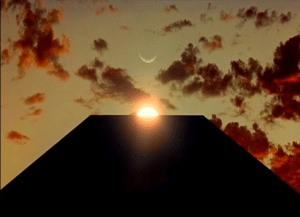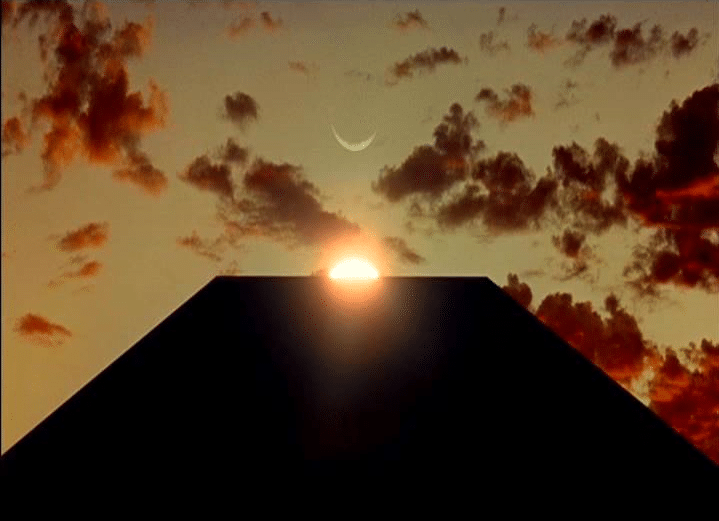On this day in 1968, Stanley’s Kubrick’s science-fiction classic 2001: A Space Odyssey makes its debut in movie theatres.
Kubrick had first gained prominence as a director for the World War I-era drama Paths of Glory (1957). After helming the big-budget Roman epic Spartacus (1960), he made a 1962 screen adaptation of Vladimir Nabokov’s novel Lolita before 
Originally entitled A Journey Beyond the Stars, Kubrick’s film was released in April 1968 as 2001: A Space Odyssey. Jumping seamlessly from Africa in the Pleistocene Era to a space-shuttle cabin some 4 million years later, the film clocked in at around three hours and contained less than 40 minutes of dialogue. Stretches of absolute silence or of the sound of human breathing (mimicking the external and internal experience of being inside a space suit) were interspersed with grand orchestral scores, including work by both Richard and Johann Strauss. Kubrick intended 2001 to be a primarily visual–rather than verbal–experience, and the scarcity of dialogue and languid pacing only enhanced the impact of the film’s impressive visual effects.
Though 2001 received many negative reviews when it was released–The New Yorker’s Pauline Kael, for one, called it “monumentally unimaginative”–its prestige grew over the years and it is now regarded by many as Kubrick’s masterwork and one of the most significant films of the 20th century. Its sweeping visual style and psychedelic special effects directly influenced space blockbusters such as George Lucas’ Star Wars movies.
At the 41st annual Academy Awards in April 1969, the film did not receive a nomination for Best Picture, though Kubrick was nominated in the Best Director category; he lost to Sir Carol Reed for Oliver! Of four nominations, 2001 won one Oscar, for Best Visual Effects.


